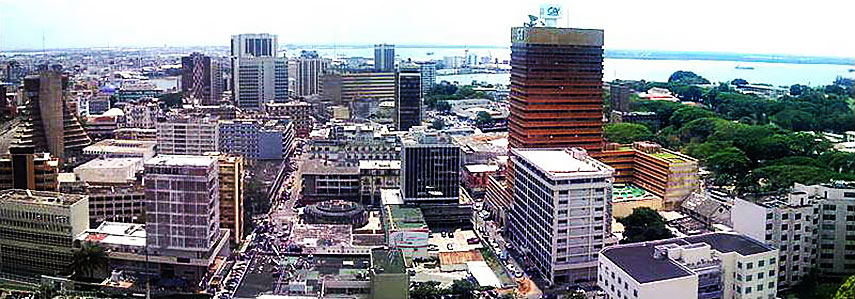Economic activity can be carried out directly by an individual; in this case, the economic agent is referred to as an individual entrepreneur, and the status of an entrepreneur is an option arising from the 2014 General Business Law reform of the Organization for the Harmonization of Business Law in Africa (OHADA). Sometimes an economic activity may follow the path of creating a legal entity separate from its partners. Among the most commonly used forms of business companies, businesses have a choice between société Anonyme (public limited company), société par actions simplifiée (simplified joint-stock company), and société à responsabilité limitée (private limited company). These forms of commercial companies can only have one partner.

Private model
Economic operators can decide to create a private limited liability company without limiting the number of partners. Consequently, there is the freedom to choose the number of shareholders. Section 311 of the Uniform Law sets the share capital of such a company at a minimum of CFAF 1 million (the US $ 1,719). The text allowed the Member States to set a lower amount. Côte d’Ivoire decided to give private limited companies the freedom to set their social capital by setting the minimum value of social shares at 5,000 CFA francs (US $ 8.60).
The legal basis is Article 5 of Order No. 2014-161 of April 2, 2014, in the form of the charter and the authorized capital of private limited liability companies. The liability of private limited companies to third parties remains at the discretion of the manager. Managers submit reports at general meetings where employees make collective decisions.
Public model
Economic operators can also choose to operate through a simplified joint-stock company. This corporate form was introduced as part of the OHADA reform of May 5, 2014, and is relatively new in Ivorian law. As with private limited liability companies, there is no limit to the number of shareholders. Article 853-5 of the Unified Law on Commercial Companies and Groups of Economic Interests states that both the size of the share capital and the par value of shares of simplified joint-stock companies are sovereignly determined by the shareholders in the charter. Moreover, this charter is free to determine the management of simplified joint-stock companies. Thus, shareholders can choose legal entities that are flexible enough. The only legal limitation imposed on shareholders in a company of this type is the appointment of a chairman, who represents the company in relations with the broadest third parties.
The public limited company is the third most common corporate form used by economic operators in Côte d’Ivoire. It is usually used to set up large companies, which in some cases may go public. Unlike private limited companies and simplified joint-stock companies, there is a minimum share capital for a public limited company. According to the provisions of article 387 of the Uniform Law on Commercial Companies and Economic Interest Groups, this amount is set at 10 million CFA francs (17,190 US dollars). However, the par value of each share is freely fixed.
A board of directors may be created to manage a public limited liability company, which must consist of a minimum of three and a maximum of 12 members. Members can choose from among themselves a chairman who must be a natural person and not a representative of a legal entity. When the chairman of the board of directors takes over the day-to-day management of the company, that person assumes the titles of chairman and CEO. When partners decide to avoid this arrangement, the CEO takes over the day-to-day management of the company with the broadest authority. The shareholders of a public limited liability company can reject the option of the board of directors, in which case the managing director is responsible for the management and administration of the company.
Other company structures
In addition to private limited liability companies, simplified joint-stock companies, and public limited liability companies, Côte d’Ivoire’s company legislation allows economic operators to seek assistance from other company structures, although this is not common. There is a société en commandite simple (limited partnership), which is characterized by unlimited liability for full partners, as well as the division of the same liability concerning limited partners. There is also a société en nom collectif (general partnership) in which all partners have the status of traders and are unlimitedly liable for the company’s debts.







